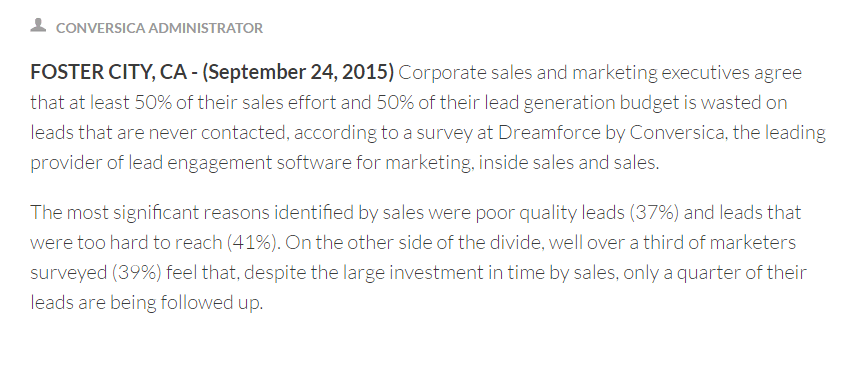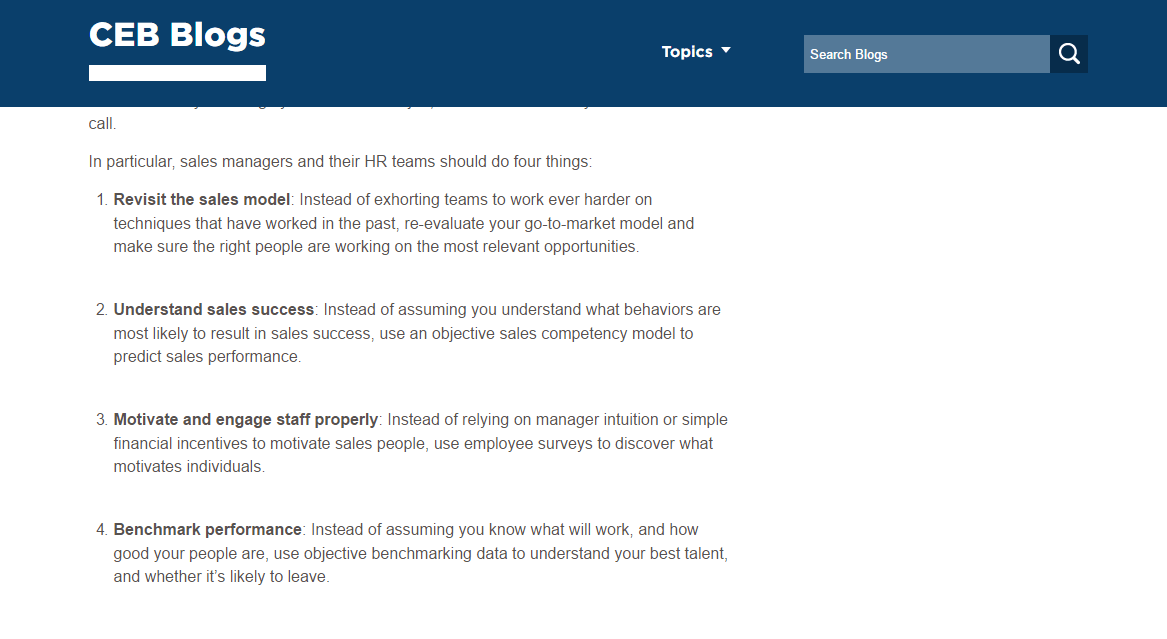Why is Sales Motivation Important to Your Business
Sales motivation can be the holy grail for a business.
Learning how to motivate your sales team can feel like an impossible task.
We’ve tried to round up all the best sales motivation strategies, insights, and ideas on how to motivate your sales team.
Let’s start with the realities of the current sales environment.
Phone calls to return, sales meetings to attend, deadlines to meet, and bonus levels to hit…let’s face it, most days in the life of a salesperson are pretty hectic.
This is why sales team motivation is important to keep at the forefront of your mind as a sales manager AT ALL TIMES!

On one hand, the fast-paced, high-pressure environment is exciting and keeps us moving at the whirlwind pace we love, but the downside is that, with time, burnout is nearly inevitable.
That doesn’t mean you have to sit back and let it happen though.
As a sales manager, you have the power to inspire your team to WANT to work harder and more efficiently.
The way you choose to go about this motivation can actually make it worse if you don’t know what you are doing.
In fact, it can even lead to your own personal case of burnout!
If you are spending a large portion of your day feeling like a cheerleader, something is going terribly wrong and honestly, you are working too hard.

I am assuming leads for your sales team are not a problem. So the rest of this post will not cover it.
However, if you do not have a consistent prospecting solution in place, this can be detrimental to your team’s success.
LeadFuze is a software solution that helps you build lists of accurate leads automatically while integrating with sales outreach tools to allow you to contact those freshly verified leads.

11 Sales Motivation Ideas For Your Reps
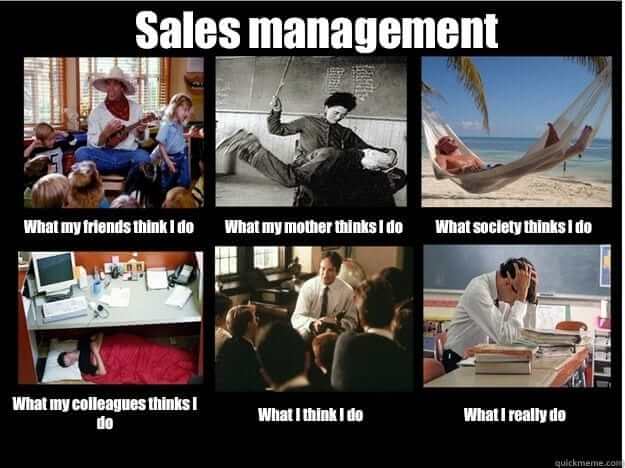
1. Empower your reps
We’ve all had that boss who rules with an iron fist.
We are left feeling like disobedient children awaiting a strike to the knuckles rather than highly educated salespeople.
We’ve all had that boss who rules with an iron fist. We are left feeling like disobedient children Share on XWhen we empower (rather than belittle) our employees, something great happens…they want to make us proud.
So how can you accomplish this? Empowering your employees can be done in a variety of ways.
The next time one of your reps is struggling with an issue, motivate them to work through the steps to figure it out themselves.
As a manager, you likely want to jump in and show them how to rectify the issue but think about it this way — if your parents jumped in to do your homework every time you struggled as a kid, would you have learned anything?
A great sales manager plays an active role in problem solving for the team but also knows when to bow out and allow employees to figure things out on their own.
A great manager plays an active role problem solving for the team but also knows when to bow out Share on XEmpower your employees by ensuring them that you know how good they are at their job and you have no doubt that they can come to a proper solution on their own.
Of course, you will be there waiting in the wings just in case, but motivating your employees through empowerment is a great way to inspire the perusal of excellent work.
2. Confrontation isn’t always a bad thing

Most good managers avoid confrontation at all costs in the workplace, but if you aren’t embracing confrontation as a valuable tool, you are missing out on a key motivator.
The word “confrontation” has a stigma attached to it.
Naturally, we don’t like telling someone when we think they are wrong but sometimes, we have to.
If you have that one member of your team that you know is heading down the path of burnout, confront them about it.
This doesn’t mean you need to yell, be aggressive, or resort to any number of negative actions associated with confrontation.
Keep in mind that harsh criticism isn’t the same as confrontation.
Confrontation is simply the act of setting things straight.
You see a problem, you address it and then you move on with a better understanding of why your employee is struggling.
Your employee realizes they are not safe trying to slide under the radar and you no longer have to cheer-lead to get the results you would like to see.
3. Gamification
This is one of the more popular motivational techniques because it not only works, but it’s fun too.
Providing an element of friendly competition to the sales process is great for developing good morale and relighting the flames of friendly competitiveness.
When it comes to finding the right gamification type for your company, it all depends on preference and your knowledge of the personality types on your team.
In fact, 85% of reps attain quota and 51% of new hires achieve their numbers in their first year when gamification is used according to an Aberdeen report.
85% of reps attain quota and 51% of new hires achieve their numbers in their first year when gamification is used. Share on XCommon motivational sales games assign certain numbers to different areas of the sales funnel.
A completed sale may get 5 points, for example, while a new lead gets 3.
Keep track of these points through a digitized scoreboard or other easy-to-spot graph and watch as the natural work ethic and underlying motivation returns with vigor.
4. Proper payouts
Money motivates, this is nothing new but when employees feel that they are being cheated, that motivation can turn to resentment instantly.
This abrupt switch normally shows its ugly head as your once motivated employee now maintains just the bare minimum to stay employed.
Can you blame them?
No one wants to feel like they are being cheated out of their reward.
When you offer bonuses or commission, be sure that the process is transparent.
Let’s face it, mistakes can happen and if your financial team is making common errors in payouts, you will end up losing more money in wasted hours by angry employees.
For this reason, many companies are changing over from manually figuring out bonuses and commissions by hand to sales commission software.
Paying on time will certainly help your sales team’s motivation.
5. Lead by example
Since becoming a manager, your role has likely changed significantly.
You now have a team that you’re responsible for and you probably aren’t pushing to hit your own personal sales quotas.
If this sounds familiar, you are missing yet another opportunity to motivate your team.
Never underestimate your ability to motivate my example.
Some of us land in the manager role due to our great background in sales while others are placed in the position because of great leadership and management skills.
No matter your background, you can lead by example.
If you come in each day with a good attitude (no matter how rough the start of your day was) your employees will follow suit.
If you make it on time to every meeting, your employees will respect your work ethic and be motivated to match it.
If you do have a strong sales background, set aside a certain amount of time each day (as little as 20 minutes can make a difference,) to join the front lines and make phone calls, speak with customers, and close sales.
You can also continue to learn by reading industry blogs, signing up for newsletters, and furthering your own education.
6. Build solid work relationships
Along this same train of thought, motivation can also come from developing sold work relationships with all your employees.
Think about the different managers you have encountered throughout your years on the job.
You were likely more motivated to sell for your manager with who you personally had a great working relationship rather than one who was indifferent or didn’t treat you with respect, right?
Slacking off when you have a great relationship with your co-workers and manager not only feels uncomfortable, but it also replicates that horrible feeling we used to get when we disappointed our parents.
Keep this feeling in mind when you are sculpting your work relationships.
7. Use symbols of recognition
Sure, money is a great way to motivate, but often it’s the simple act of recognition that goes a long way.
Why do people wear expensive designer brands or drive fancy sports cars?
Typically these are status symbols that show the world that our lives are comfortable.
What are the symbols of success within your company?
Perhaps it means motivating with a new suit as a reward or supplying the top employee with a trophy or certificate they can display on their desk.
Once you identify the success symbols at your office, start using them as motivators for success.
8. Reward qualities outside of sales performance
While the importance of closing sales is irrefutable, other important aspects of work performance shouldn’t be neglected.
Take time to recognize and reward qualities like best attitude and best meeting contributions.
When your employees are recognized for things other than just their sales, they will be motivated to improve other aspects of their performance as well.
Reward through recognition is a tried and true method for getting the best out of your team.
9. Organize weekly sales meetings
Communication should never be underestimated.
By creating weekly meetings you have the chance to set short-term weekly goals.
By setting goals with short deadlines, you are pushing your team to do the very best.
Also, take the time in these meetings to discuss successes, roadblocks to success, and how you can improve performance as a team.
This is a great chance to reconnect and re-energize your team. If there are any issues to be discussed, now is the time to let them be aired.
10. Have your executives get involved
Sure, praise from anyone is good but praise from the CEO? Even better!
When you have an employee meet or exceed an outstanding call, bring the top-level executives in to offer congrats and praise for a job well done.
We all love a good pat on the back, but when this comes from those at the top, it feels that much better and makes us go the extra mile.
Have your CEO pick up the phone and actually call your employees.
Or, if at all possible, arrange a lunch or dinner that will give them a chance to network and learn all they can from those higher up.
11. Give timely feedback
Your job is undoubtedly busy and finding time in your schedule is not always easy.
When it comes to rewarding your team, however, you can’t afford to put it off.
Praise is great but if it comes 3 weeks after an achievement it loses a bit of that sparkle and shine.
Be sure you are taking time to give feedback within an appropriate timeline.
It makes take 10 minutes away from what you were working on, but the motivation that comes with positive feedback is well worth setting everything aside for the moment.
When it comes down to being a great sales manager, knowing your team and what makes them tick is paramount to knowing how to motivate them.
Develop and nurture your relationships with employees, shape yourself into the example you would like your team to follow.
Behind every all-star sales team is an inspiring and motivational sales manager.
Incorporating sales motivation into your everyday office environment will be a priceless payoff in the long run.
Why Contests and Motivators Can Steer New Hires to Greatness
Your new hires are the future of your team.
You carefully interviewed and recruited them for their outstanding talent/drive/work history etc. and now the process of onboarding begins.
Integrating your new and existing team members is a process that many managers overthink.
It’s as easy as tapping into our primal instincts.

One tried and true method for cultivating a healthy and productive sales environment is to incorporate contests into the routine.
Most of us get started in the sales industry because of our competitive nature, so nurturing this natural inclination to perform at the top can be yet another way to keep the office environment from getting stale.
Let’s face it; even your best salespeople can lose their competitive drive over the years.
This downward motivation spiral is often simply a side effect of years spent in the pressure-loaded competitive market.
However, new hires are chomping at the bit, right?

This is the time to stoke the flames.
So how do you harness that squeaky-clean-newness and preserve that drive to sell past those first few months?
By utilizing a reward system, not only will you see an improvement in overall morale but your original team members are going to experience a renewal of their competitive spirit.
Combining fun, motivation, and the drive to win into your office will not only break up the day but will also allow you to see what happens when your team members really push it to the limit.
Why Do Contests Work
Contests and competitions are one aspect of history that continues to repeat themselves.
Beginning with the early Greek Olympic Games to our ongoing nationwide obsession with football each Sunday, we thrive off of competition.
In fact, this satisfaction doesn’t only come from competing ourselves but also by competing vicariously through our adoration and loyalty to our favorite sports teams and athletes.
Delving even deeper into the psychology behind competitions, let’s look at some great information from Psychology Today.
Competition is what psychologists refer to as an “extrinsic incentive.”
This basically just means that the motivation to adopt the behavior is sourced externally. So it’s something you do for the reward.
The drive remains as long as the incentive is still there.

Keeping that motivation thereafter the contest has ended can be a bit tricky, which is perhaps the one downside of extrinsic incentives.
But why do we have such a natural drive to win?
Simply put, we hate to lose!
In the high-pressure sales world, winning is what we strive for!
We “win” a lead, we “win” a sales presentation…essentially we perform in a variety of ways but we win when we convert or meet our goal.
It’s a high-pressure environment day in and day out in the sales world.
If we can continue to nurture this need to win as sales managers while adding entertainment value, then our whole team wins.
The business is also victorious since sales goals will be met and performance should increase across the board.

Consider this:
In a survey of faculty, students, and staff at Harvard School of Public Health almost half stated they would rather exist in a world where the average salary was $25,000 and they earned $50,000 than one where they made $100,000 but the average was $200,000.
Think about that for a minute…nearly half of the people interviewed would rather make less but be above the average rather than make more and be behind their peers.
If that doesn’t sum up competitive nature, what possibly could?
As a human race, many of us suffer from a term known as “last place aversion.”
This phenomenon has shown time and again that those closer to the bottom of the socioeconomic ladder typically oppose economic policies that will help those below them.

Basically, no one wants to be the last place in sports, career, and economics.
(If this concept interests you, check out The Economist’s article on last-place aversion.)
Remember that horrible fear of being picked last for a team in gym class? We never really lose that fear.
Success Stories About Employee Competition

Story #1: Competition platform by Bob Marsh
An article written by Bob Marsh on the topic of employee competition highlights his own success story.
Realizing that the employees on his sales team at ePrize, a large digital engagement provider, were largely involved in the world of real-time results and digital stimulation, Marsh decided to create a competition platform, unlike most others.
The following is an excerpt from his post on Inc.com.
“I’m talking real-time digital leaderboards–the kind that offers options for personalization. That includes employee photo displays and engagement tools, such as audio splashes that demand attention when someone makes a big move in a competition. Whether on flat-screen monitors in central locations around the office, or each employee’s iPhone, these leaderboards would surround entire sales teams, keeping individuals cognizant of where they, and their colleagues, stand in competitions–and motivating them to see their face move to the top. Some call it gamification. I just call it making things happen so you can hit your number.”
“We saw immediate results, with a 230 percent spike in sales.”
“It took us three months of around-the-clock work, but we created an app, called Compete that we thought would do the trick. It runs within Salesforce.com and allows sales managers to design competitions based on very specific goals. Whether a manager needs to drive Salesforce.com adoption, or rally their team around key sales initiatives, managers could now build an engaging competition around that goal. They’d simply download the app by visiting the Salesforce.com AppExchange, and have access to creating as many competitions as necessary, for any given duration.”
Story #2: Sales contest by Fuelzee
Another example of a successful sales contest comes from Dan McGraw, founder, and CEO of Fuelzee.
Rather than only rewarding the top salesperson, he decided to develop a system that rewarded the team member who was trying the hardest.
McGraw shared the following bit of his experience in a BusinessNewsDaily.com post:
“Every time someone got a no, we tracked it in our system, and the person with the most no’s received a $100 gift card every week,” McGraw said. “This might sound crazy, but you get a lot of no’s when doing sales. The more no’s you get, the closer you are to getting a yes. The prize of getting a yes is way larger than $100, so you still wanted to get there. This nearly doubled our outbound calls and motivated the whole team.”
As you can see, there is no right or wrong way to run a contest.
As both these examples show us, the format, motivator, and prize are largely shaped by your team and the needs of your business.
So let’s bring this back to our own sales teams.
We have a group of new, motivated salespeople in addition to our existing team members. With our newfound understanding of why we thrive off competition, we are now poised to create something great for our team.
Not only will contests mimic the competitive market of our sales team, but they will help reward creativity, bring some fun in the office and also appeal to our human need for recognition.

2 Steps in Creating a Contest
If contests are new to you, you can start working them into your office at your own pace.
This can be as little as introducing a one-hour-a-week contest to test the metrics and feel out the waters.
Making a contest as a sales team motivation strategy is a solid idea. Just as you beta test most things in your daily life, try mini-contests to get you started.
See if they work as sales team motivation strategies and then make adjustments as necessary.
Step 1: Choosing the motivator
The most important part of the competition is the prize, right? First, figure out what you want to use as the carrot you are dangling in front of your team.
1. Money
The great thing about contests is that they allow you, as the manager, to look at what areas require improvement and then offer motivation to improve them!
2. Fun activities and rewards
There are many other ways to harness that passion and competitive spirit without going over what you can afford.
Fun is also an aspect of the office environment that is often lacking and introducing it back into the workweek can also be motivator enough.
Offering perks and rewards for the team or individuals when goals are met can be a great way to elicit hard work from your team.
3. Career reward
Keep in mind that everyone on your team won’t be motivated by the same thing.
For some, the opportunity to improve and reach new heights in their career is what drives them to work harder than the rest.
Rewarding specific sales team members with opportunities and experiences within the company is another great motivator.
Perhaps scheduling some one-on-one meetings, lunches, etc. with a senior in the company or allowing the contest winner to attend strategy sessions they normally don’t have access to will be the reward your team members are looking for.
Step #2: Choosing the contest

Now that you have chosen your reward, the fun part is deciding on the contest.
This part will be unique to you and your team.
As the manager, you know your office well so deciding on the best course of action when it comes to contests will rely on your knowledge of what your company needs and what motivators work best.
1. Sales fantasy football
To use this contest, you will begin by using a player scoring system that uses 2 to 4 key performance metrics.
Now you just need to create a fantasy sales league of your own, complete with a regular season, playoffs, and of course the company championship.
This is just one example that shows you contests don’t have to be high-tech to be effective.
2. Motivation email to your sales team
Everyone needs a word of encouragement at times.
Especially your sales team, they are constantly getting rejected, and they constantly need to be reminded of why they are valuable and how much they are needed at your company.
This is where giving motivation emails for your sales teams come in.
You don’t have to get up and speak in front of everyone all the time. (Giving motivational speeches for your sales team at group functions or on special occasions).
But most times you have an opportunity daily to use motivational emails to motivate your sales team.
3. Mining for gold
This great contest idea comes from Repignite.com.
This sales contest is a great way to get more business.
It’s as simple as having your team reach out (or “mine”) for new business from their existing customers.
Depending on your company, “new business” is likely to come in a variety of forms ranging from purchasing new products or services to enrolling in additional programs.
Incentivizing your sales team to get the most from your current customer base is a great habit to set into practice.
Things to Consider in Creating Contests

No matter what contest you choose, there are a few main points you want to consider.
-
Know your metrics inside and out
Once you have a baseline for your sales metrics, you will be better able to measure success in the future of your contests.
-
Focus on areas where you need improvement
Identifying areas where your sales (or your team as a whole) can improve will give you contest ideas right off the bat as you create motivation for improving these points.
-
Make sure all rules are communicated properly
-
Develop a sense of urgency
By utilizing these contest ideas and motivational techniques, you will notice that as performance increases, workplace morale is elevated as well.

6 Sales Compensation Structures: Pros and Cons
It’s time to grow your sales team and, as a manager, this means you’ve got a lot on your plate.
Nothing will kill sales motivation faster than a poorly structured sales comp plan.
Not only do you have the hiring and on-boarding processes to plan, but before you even get to that point you’ll have to figure out exactly what it is you are looking for.

Sounds easy enough, but when you consider the importance of your decision, you are probably asking yourself many of the following questions:
Do I want to hire entry-level reps or those with more experience? What’s my budget? What are my expectations from a performance standpoint?
Once you answer these basics, the next important decision you’ll make is which sales compensation plan to roll with.
How you pay your employees will have a large impact on the different type of applicants you’ll attract Share on XIt’s worth taking the time to explore all your options.
When it comes to compensation, of course, you want to offer incentives that inspire the ultimate amount of drive from your new hires, but you also want to offer competitive compensation that will keep your top salespeople loyal to you for years to come.
As a rule of thumb, salary-based compensation inspires loyalty whereas commission inspires hard-selling, go-getter sales types.
Are you starting to feel the pressure?
Luckily there are several different options available to fulfill your needs and goals while keeping your CFO happy.
Basically, you have 3 main options (salary, commission-only, or salary and commission combo) with several offshoots.
Each naturally will have its own pros and cons, but ultimately you need to look at your needs, budget, and goals for the future to determine which is best for you.
11 Sales Motivation Ideas to Get Your Reps Head in the Game Share on X1. Salary only
This is the most straightforward payment option.
You decide upon a salary during the hiring process and that’s the amount the employee can expect to make each year.
This includes a contract that can’t be changed unless it is renegotiated. All details are laid out ahead of time and you basically run on autopilot.
Pros:
- Your budget is set and there are no surprise expenses.
- You are likely to retain employees longer than you would with a strictly commission-based layout if sales hit a slump.
- You’ll draw a more loyal group of employees.
- Compensation isn’t based on performance so your employees will have a baseline to plan around each month and therefore have a sense of security.
Cons:
- Without the pressure to make a commission-based salary, there may be less motivation to sell.
- Depending on your sales flow, your employees may realize that more money could be made elsewhere at a company that does offer commission.
- Poor performers are making the same baseline as those who have their nose to the grindstone, leading to resentment between co-workers and a potentially hostile environment.
- Over time, complacency often takes over.
2. Salary plus bonus

For employees who are looking for a reliable payment structure, the salary plus bonus payment is just that.
In this structure, the employee receives the agreed-upon annual salary with the understanding that at predetermined intervals, a performance-based bonus will be given if certain goals are met or surpassed.
Pros:
- Gives you a baseline sales budget to work from.
- Brings motivated and experienced applicants your way.
- Employees will push harder to meet goals since there’s a monetary motivation.
- As a manager, you have the ability to place a greater demand on not strictly sales-based aspects of the job.
Cons:
- Employees may look elsewhere over time if they feel that their earnings are still somewhat capped.
- Salary may not meet the needs of everyone since it is lowered to allow room for bonus pay.
3. Commission-only
The straight commission payment structure provides no base salary for employees.
Compensation results from a portion of each sale they close.
Pros:
- Your employees will be highly motivated to sell.
- Your company pays solely based on performance, which will likely lead poor performers to seek out a salary job elsewhere.
- With essentially no cap to income, your top salespeople are likely to remain content with your company and stay with you for a longer period of time.
Cons:
- Without an idea of your exact compensation structure, you will lose control over expenses.
- Often non-sales resulting tasks are neglected, making it difficult to get reports, follow-up, and account maintenance done correctly.
- Your employees may become “cut-throat” and take on questionable tactics to convert a sale. This is a great sales team motivation idea but has its downsides that can be lethal if not carefully considered.
4. Base plus commission/salary plus commission
In most sales environments, you will see this form of compensation.
It’s popular since it offers you some of the best of both worlds.
Unlike the bonus and salary combo discussed earlier, this option allows you to pay a set salary to the employee but also offer commission based on closed sales.
Pros:
- You combine the stability of a solid salary and also motivate your team to push harder to close sales.
- The more you offer in the way of compensation, the higher the level of salespeople you will attract.
Cons:
- Your employees may be put off by the fact that your commission rate is likely lower than those offered in commission–only opportunities.
5. Draw against commission
In this commission-based plan, employees are given a specific amount in advance and this is deducted from the commission offered for each sale.
You will often hear this called a “pre-determined draw.”
Essentially, this offers your employees the benefit of being able to rely on a certain amount of income but also pushes them to sell beyond what is advanced so they can make more profit.
Pros:
- Employees are generally happy starting with a specific amount of income
- You are motivating your employees to sell, sell, sell while offering some level of stability.
- This platform often helps retain employment.
Cons:
- If your employee does not sell enough to cover this draw, they will actually owe you money. This leads to poor work morale and lowers the desire to sell when known as viewed as their profit.
- Depending on your employee’s performance, you may soon find your company is falling behind by offering the draw in the first place.
Residual commission
This pay type works by supplying the employee with a commission as long as an account is generating revenue for your company.
This payment type over time becomes pretty reliable for your employees as long as they maintain the account.
Pros:
- Your employees will work to keep existing clients happy.
Cons:
- If you lose an account, you risk losing your employees as they search for better pay elsewhere.
But wait — there are still other deciding factors.
Once you consider the main payment structures and weigh the pros and cons chances are you might still be on the fence.
If one option doesn’t stand out to you yet, ask yourself the following:
At the current time are you looking for those motivated wholly on closing a sale?
If retaining longtime salespeople takes a backseat to have salespeople who are fully motivated but may not stay long-term, a commission sales plan may be your best bet.
If loyalty is one of your top goals, you may go with a higher salary-based option.
What’s the average length of your sales cycle?
If closing a deal takes a long time, you will be hard-pressed to find commission-only sales reps who will be happy to stay with you.
Short sales cycles are great for commission-based pay.
Keep in mind that the average age of today’s industrial salesperson is 36 and about 60% have either graduated or had some college training or had some college training.
Avg age of today’s salesperson is 36 and 60% has either graduated or had some college training Share on XMost salespeople are looking for a position that will challenge them and have payoffs that offset the cost of their training and provide them with a solid living.
Companies that try to save a dollar here and there by skimping on compensation are likely to notice not only lower morale across the board but also less desire to sell.
With all this in mind, this seemingly simple decision has a large impact on how your team will perform so make sure you take the time to research your options and find the best compromise for both your company and your future employees.
Calls Made vs. Call Activity: Which Are You Measuring?
As a manager, it’s natural to want to measure every aspect of your sales campaigns. After all, how can you measure your own success in managing the team without hard and fast numbers?
In fact, it’s part of your job. Inherently there is nothing wrong with that.
The real question is, what are you using to measure sales call success?

Most of us can agree that quality trumps quantity any day.
Yet one aspect we focus on tends to be the number of calls made in a day. Every day.
How does that measure the effectiveness of our sales reps?
After all, one call that results in a face-to-face meeting scheduled is better than 10 cold calls that go nowhere.
It’s the sales manager’s version of the adage “a bird in the hand is worth two in the bush.”
So why do we measure the number of calls made then?
As managers, it becomes increasingly more tempting to measure every metric with the constant stream of new sales metrics software at our fingertips.
We’re often led to believe that the more you know the more you can improve.
Sure, this is true with a certain aspect,s but shouldn’t those be the ones we are focusing on?
With that being said, there are a few benefits to measuring the number of calls made. And while it might not be the most important stat, it’s worth noting – just not harping on.
3 Benefits of Measuring Calls Made
While this metric isn’t terribly important, as you will read throughout this post, there are a few benefits of knowing these numbers.
- Making sure new hires don’t have efficiency issues
- Marking a baseline to see what percentage of your calls as resulting in sales, connections, etc.
- Knowing if your outgoing calls take a sudden nosedive.
Aside from this, the number really doesn’t matter.
Measuring the number of calls also allows us to actively change things on our team.
If we see 100 calls being made by one salesperson a day, we can now make the new goal of 150 if we choose.
Ask yourself though, is this really making an impact on your sales numbers?
The truth is that you aren’t valuing activity and productivity over the number of calls made, you are missing the mark.
Why You Shouldn’t Be Overly Interested in the Number of Calls Made
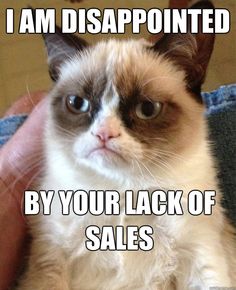
Why is it that we have this narcissistic need to boost the number of calls our teams make in a day?
It’s simply not the largest measurement for success.
You can cold call from sunrise to sunset, but without setting an appointment, making a sale, or moving a prospect one stage further down the sales funnel, you are wasting your breath.
Reason #1: It’s hard to differentiate the purpose of each call
Were five of them to the same lead who asked you to call them back several times since they had a million things going on in the office?
Were they serious inquiries or completely cold, cold calls?
In a post by Jeffrey Gitomer, he shares how he measures sales success and while it may seem simple, that’s exactly the point:
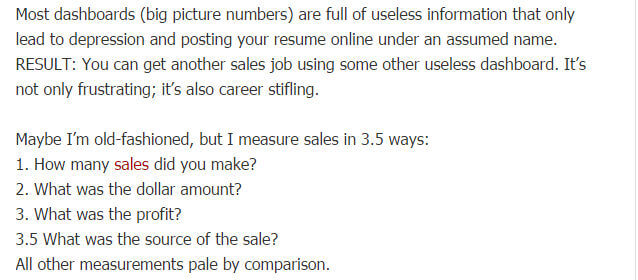
Reason #2: Some salespeople are cold call reluctant

Another issue with placing too much emphasis on call velocity is that many salespeople prefer other methods of contact, aside from phone calls, to communicate.
Many of even the best salespeople suffer from call reluctance.
Do you know those days when you rearrange your desk 10 times and straighten out all the photos hanging in your office?
It happens, not pushing the call number can help increase productivity.
While not all call-reluctant salespeople are effective through other mediums, in some cases, reaching out via email may prove more productive.
Taking the pressure off can be beneficial.
Just be sure you are measuring email activity and connections made just as you would over the phone.
Why You Should Focus on Measuring Activity
So we’ve stressed the importance of activity measurement but what does that really mean?
Well, measuring activity requires noting those cold calls (or follow-ups) that result in taking the next step.
Did your salesperson set get a face-to-face scheduled, did a sale close?
These are the important metrics.
In addition, also connections can be broken down further to:
- Voicemails left
- Emails sent/responded to
- Calls answered
And, if your company also sells through social media, you can measure:
- LinkedIn connections
- Comments made
- Interactions
Activity is the one thing you should always measure.
In fact, research shows that at least 100 of these sales activities (voicemails, emails, etc.) should be made daily for maximum efficiency.
To get even better results, 70% of this activity should be conducted over the phone.
4 Sales Metrics You Should Focus on Instead of Call Numbers

You’re likely thinking “enough already! Get to the good stuff already, what should I be measuring!”
These are some of the best metrics for tracking the success of your sales campaigns.
1. Time spent selling
Time is one of your most precious assets.
Finding out exactly how much time your sales reps spend actually selling is important since you can look for inefficiencies and other aspects hampering your sales process.
It’s been discovered most salespeople will spend between 6.5 and 8 hours weekly searching for information.
If you notice, for example, this is where the majority of time is being spent, investing in lead generation software may help your teamwork more efficiently.
2. Lead response time
More and more companies are having great success generating leads online, but the attention span of your online lead is not very long.
Speed is of the utmost importance when it comes to turning these leads into sales.
Measure your average response times.
Is there room for improvement?
Consider this — companies that take 24 hours to respond to a lead are 60 times less likely to convert. SIXTY!
3. Win rate
When looking at sales on a large scale, it can be easy to lose track of the individual abilities of your sales reps.
Measuring opportunity win rate can highlight your top sellers while also cluing you into who may need a bit more training or motivation.
For those with lower opportunity win rates, you can schedule time sitting in on calls with them.
This can offer you insight as to why they are having more difficulty closing sales and allows you the opportunity to be a mentor.
Of course, all this pays off by increasing your sales overall.
4. Total sales by time period
There are countless reasons that your sales ebb and flow, knowing what’s normal for the month can help you better set and understand your sales goals.
Ideally,y you will want to see your sales moving up each period, but this metric can show you where you might need to do some work if you are noticing irregularities.
As you can tell, these are just a small sampling of the many metrics to choose from. What analytics do you rely on for measuring the success of your sales team? Are there any you simply report because you feel like you should?
10 Reasons You Are Missing Your Sales Targets
Being target motivated is one quality of a great sales manager, so what do you do when you notice your team is continually missing sales targets?
PANIC!
(just kidding…well, kinda).
What you really need to do is take the time to re-evaluate your sales process, your coaching techniques, and even the motivation levels of your team.

Did you know that according to a Bridge Group report, an average of 50% of sales reps is not making quota?
According to a Bridge Group report, an average of 50% of sales reps are not making quota Share on XMany reasons may have nothing to do with your management style, but upon careful examination, I would be willing to bet you’ll notice areas that need a little extra TLC.
1.Your goals aren’t firm

Like anything else in life, if your goals aren’t fully formed they will be impossible to attain.
Setting loose sales goals is like making a New Year’s resolution to lose weight.
Without developing the specifics (how much, how will you do it, etc.) you probably aren’t going to be setting yourself up for success.
Utilize the following acronym from FileBoard for setting attainable goals —
SMART.
Specific Measurable Actionable Realistic Time-related
By utilizing this on a management level, you can set more realistic goals and your reps should also be utilizing SMART for their very own goal setting to hit those targets.
If you are missing your quarterly targets, for example, break your goal down into weeks or months.
This creates a more palatable goal that your team can monitor closely.
It also allows you as the manager to notice things are slipping off the tracks before your quarterly goal is completely derailed.
You will also be better able to identify the sales slip-up cause much easier when you are only looking at the stats for the week (or month).
2. You’re raising targets too quickly

Believe it or not, not at sales reps are looking to hit the goals you set for them.
This probably leaves you scratching your head a bit, I mean…why would anyone NOT aim to hit their target?
The answer is actually pretty simple. You are raising sales targets too often.
Think about it from the reps’ point of view.
“If I hit the sales goal $X, this means I will be working overtime to hit the next goal.”
I’m not saying that you shouldn’t change your goals based on your sales, but what you shouldn’t do is jack them up really high when you hit the target.
Why?
Your salespeople are going to become discouraged.
What good is celebrating the achievement of a goal when you now worry you aren’t even going to come close to achieving the next?
“Employees avoid exceeding targets if they know it will inflate future expectations. Too often, work targets are routine adjustments based simply on historical performance. Once employees recognize the predictable pattern, they may deliberately limit their efforts in a bid to temper future goals. This is known as the “ratchet effect” and it gets in the way of optimal firm performance.”
3. You’re not coaching

For those with long-term sales management experience, it can be hard to take a step back and fully examine the shortcomings of your sales team.
In fact, you might be a part of the problem and no one wants to face that troubling thought.
Sure, you are holding meetings and encouraging every chance that you can, but are you actually sales coaching?
Being a mentor and someone that your team not only has respect for (but doesn’t fear) is key to being in a great position to coach your sales team to greatness.
The Sales Executive Council found that sales reps who received 3 or more hours of coaching per month had 17% higher goal attainment than reps who received less than 2.
That’s a big difference!
From the Salesforce blog:
“A recent study by Zenger/Folkman showed that first-line managers feel, to a greater extent than their executive counterparts, that it’s their responsibility to give orders and directives versus work collaboratively with their team members. Unfortunately, when leaders give orders they succeed in conditioning their people to wait for those orders, resulting in a decline in the initiative and overall engagement — crappy.”
You are more than a captain of the ship, you need to get in there and help show your crewmates how to set and direct their sails. (see what I did there? sails/sales…moving on…)
One-on-ones are the best opportunity to coach your reps individually.
Set up your meeting and stick to a plan. A sports coach wouldn’t show up without a playbook and plan of action, neither should you.
Sitting down and asking what your rep wants to talk about is a giant waste of time.
As the coach, you lead the discussion.
This doesn’t mean that you can’t ask questions beforehand. Touch base with the rep to find out where they feel they could improve.
For example, if you know that follow-up is where this particular employee is slipping up in the sales funnel, make that the subject of the one-on-one.
Ask questions and really listen to the answers, you will learn more about the issues at hand and how you can work to correct them.
Lastly, review data with your employees and see where things may have gotten off track.
4. Your lead generation is poor

How strong are your leads?
As you can see, valuable time and effort are wasted on leads that are never going to convert into sales.
Do you have a clear definition of what a “good lead” is?
Surprisingly, this is one of the leading reasons poor leads are acquired…you and your team don’t know exactly what they are looking for and chase whatever comes their way. Top reasons you are chasing bad leads:
- Your content isn’t aimed at your ideal leads
- You aren’t qualifying your leads
- You’re placing your content in front of the wrong audience
5. Your sales and marketing teams are disconnected

When your sales and marketing departments aren’t aligning their efforts, your sales are without a doubt going to suffer.
Sales and marketing are a bit like cats and dogs.
A recent study actually found that 87 percent of the terms sales and marketing use to describe each other are negative.
Consider this, your clients are connected through so many platforms these days that if your marketing and sales team aren’t reaching out with similar goals in mind and similar branding, things aren’t going to run smoothly.
That’s a fact.
So how can you improve this?
If you don’t already, start having meetings with both teams.
Allow them to talk about issues (maybe marketing is passing down too many unqualified leads) and come up with solutions.
When your two teams begin to interact, they will no longer be a faceless person to place blame on, they will be actually valuable players that can listen to and take advice.
6. Your team is suffering from disengagement

Disengagement isn’t only an issue that crosses different departments, it happens all too often within the team.
Getting your reps engaged again would be easy if you could just motivate with money…but when salespeople aren’t satisfied, money often may cover the wound for a moment, but ultimately with disengaged salespeople on your team, you will be missing your target again and again.
7. Follow-up is falling short

Want to know how poor follow-up is impacting your sales?
Take a look at these statistics regarding follow-up from Kaleidico.
- 2% of sales are made on the first contact
- 3% of sales are made on the second contact
- 5% of sales are made on the third contact
- 10% of sales are made on the fourth contact
- 80% of sales are made on the fifth to twelfth contact
Tips for improving follow-up from Entrepreneur —
- Put your leads into one of three categories — ready to buy leads (hot), almost ready (warm), and leads that aren’t likely to be ready ever (cold). This is often referred to as “cherry-picking leads.” Of course, your sales team will want to focus on the low-hanging fruit, but make sure that they are also working on turning those warm leads into hot ones.
- Perfect your timing — Follow-up success or failure is largely due, in part, to timing. Be sure your team is touching base with warm and even some cold leads, often. Implement your own hard and fast system for follow-up times and make sure your entire team is on board.
- Make sure your salespeople are educating — Following up with leads isn’t worthwhile if you are simply checking in. Make sure your reps are actively educating leads with every interaction.
8. Your metric tracking isn’t up to par
If you aren’t tracking the success of your campaigns or the number of connections made each day, how are you going to identify where you need to improve when you keep missing your sales target?
Take a look at your current metrics and tracking system and notice where you can be more efficient.
9. You have a weak spot in your sales funnel
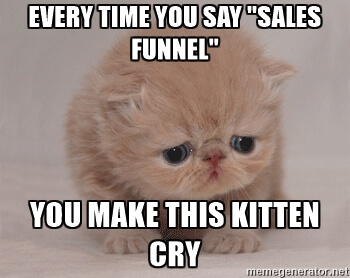
If you are missing targets, chances are there is a weak spot in your sales funnel.
If you are missing targets, there's a weak spot in your sales funnel. Share on XAs mentioned above, perhaps it’s your follow-up or maybe your leads are poor, but diving in deep to see exactly where you are losing potential customers is key to getting a successful rehabilitation plan in place.
Once again, the importance of metrics reveals itself! Here are 5 metrics from Hubspot that will help you pinpoint your sales funnel issues.
- Traffic Sourcing & Engagement Stats from Content
- Call-to-Action Effectiveness
- Landing Pages Submission Rates
- Email Click Rates
- Measuring Email Marketing Automation Performance
10. Your sales cycle has lengthened
If you are noticing a sudden drop off in sales target achievement, take a look at your sales cycle.
Has it recently become longer?
The longer it takes to get from prospecting to purchasing, the easier it is for customers to fall through the cracks.
Even if your sales cycle hasn’t changed, tightening it up a bit may help increase your conversions and get you one step closer to hitting your sales targets.
So how can you shorten it?
Check out these 4 tips from Pardot:
- Objective lead qualification — this allows you to separate hot, warm, and cold leads.
- Lead nurturing — by nurturing your leads. salespeople can more accurately gauge what it is that the leads want and how they want the information delivered.
- Detailed prospect tracking — By tracking where your leads are in the funnel, there’s no real mystery.
- Speed up your follow-up — Don’t let warm and hot leads turn cold by keeping them hanging in the sales funnel for too long. When you increase follow-up time, you are effectively shortening up the cycle.
Conclusion
With all this in mind, delve deeper into the effectiveness of your own management style and the sales process itself and soon you will identify the reasons you are missing your sales targets.
Once these issues are identified, you are ready to make changes, move forward, and once again begin meeting your goals.
What sales motivation strategies have you implemented? Connect with me on LinkedIn and let me know!
Want to help contribute to future articles? Have data-backed and tactical advice to share? I’d love to hear from you!
We have over 60,000 monthly readers that would love to see it! Contact us and let's discuss your ideas!

